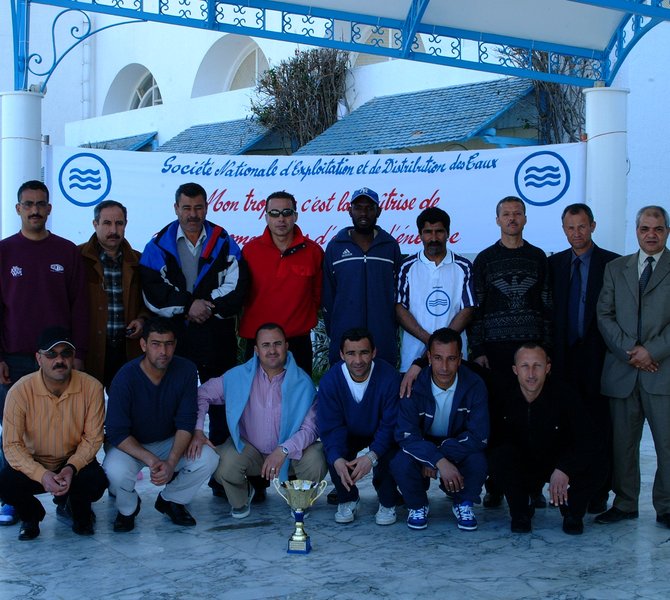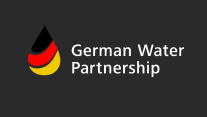Cases
Energy efficiency in water supply systems in Tunisia
Summary
Water supply systems are massive consumers of energy, which is used in each stage of the water production and supply chain. The Société Nationale d'Exploitation et de Distribution des Eaux (SONEDE) implemented an energy strategy, which requires them to participate in the national plan for energy management to reduce expenses and ensure citizens the best product at the lowest possible cost. The latter involves not only reducing the operation cost of water supply by diversifying the energy resources and the use of renewable energy, but also to projecting an image of environmentally conscious company.
Situation
Project Background
Considering the rapid increase of energy prices due to economic and demographic growth, future projections of energy cost in the water sector are rather disturbing, as it is the duty to improve the level of coverage and service of the pumping and distribution network in order to connect inaccessible areas. Renewable water resources per capita are marked by a downward trend in the entire Southern Mediterranean region as a result of global warming. In order to preserve the balance between water supply and demand, SONEDE is forced to provide solutions that are very energy intensive: increasing the overall water supply by mobilizing available resources, strengthening the water transfer from north to south (piping system), and the use of unconventional resources such as the desalination of brackish water and seawater. The water supply and distribution system includes 1,300 pumping stations and 1,000 water tanks (reservoirs), which has a coveragerate of 100% in urban areas and 93.5% in rural areas.
Stakeholders
The Société Nationale d'Exploitation et de Distribution des Eaux (SONEDE) is the main supplier of potable water in Tunisia. SONEDE is primarily responsible for the construction, expansion and the maintenance of the very complex and diverse Tunisian water infrastructure, which covers the whole country with a cumulative length of 50,000 km. This massive infrastructure requires a large amount of energy for the production, transfer and distribution of potable water. Therefore, SONEDE is one of the largest energy-consuming enterprises in Tunisia, having consumed 360 GWh in 2013 -which is equivalent to € 26 million- representing 20% of the company’s turnover. SONEDE wants to contribute to the national program of energy management as well as in the sustainable development. Achieving a significant energy efficiency and renewable energy project requires them: • The implementation of a cooperation network for technology transfer and knowledge exchange • The mobilization of relatively substantial funding In that regard SONEDE has implemented an energy strategy, which demands them not only to participate in the national plan for energy management, but also to diversify the energy resources and the use of renewable energy -among others. To succeed in this energy transition it is necessary to: start a successful partnership with key stakeholders, e.g. national and international donor organizations; secondly, establish a network to transfer experiences in these areas (training, working groups, seminars ...); thirdly, develop good flow of communication with civil society; fourthly, decentralize services; and last, develop the Tunisian legislation on energy efficiency and renewable energy (a new law is already under discussion). The Department of Maintenance North of the Société Nationale d'Exploitation et de Distribution des Eaux (SONEDE) played an important role at the initial implementation, afterwards the pilot program scaled up to all districts of Tunisia.
Approach
Phase 1: Exploring & Engaging
Energy costs in 1998 represented 9% of SONEDE’s turnover, which was already a quite heavy load. Monitoring utility bills, programming operation of pumping equipment and the selection of electricity contracts were not optimal. An analysis showed that there was a potential for significant change, which would need a relatively small investment but would require a large mobilization of stakeholders. The Northern Maintenance Department began with a large-scale initiative in the northern districts. Further steps included to outline a working methodology and identify how to optimize the technical aspect, also collecting all the necessary data for the study and conducting energy audits in all the 300 stations in the northern districts. This first phase took 4 months. Thereafter, they had a month to prepare studies and simulations, then, for a month several meetings took place in each district gathering top officials, as well as the technical and operating staff. The SONEDE core group that pushed the idea forward took some time to be established. After years of being in touch, there was an opportunity for an internally-driven initiative to create a task group of motivated multidisciplinary group of engineers. Football tournaments were the perfect setting to gather around 200 people and organize seminars on energy management in a sportive environment. That was significant for trust-building between the many stakeholders at SONEDE.
Phase 2: Building and Formalizing
Cooperation between the various parties was formalized in SONEDE while emphasizing the collective decision and the direct approach. The communication and data transfer between the stakeholders is governed by manuals which give guidance of procedure. However, they are developing a procedures manual for the control of energy in order to comply with the ISO 50001 standard for the establishment of a system of energy management.
Phase 3: Implementing and Evaluation
The direction of energy conservation plays the role of assistance and coordination between the parties. Two regular annual meetings take place: one for planning and organization, and another for monitoring and evaluation. There are also further meetings taking place at the national level involving the senior management for the purpose of presenting annual results and taking important decisions regarding further actions.
Phase 4: Developing further, replicating or institutionalizing
An energy control department was created within SONEDE to ensure implementation of energy management. Because of the excellent results achieved in the pilot program, the main responsible of SONEDE decided to scale up these activities throughout all the pumping stations and districts of Tunisia. Especially, after the oil prices increased. Later in 2007 a central office for Energy was founded, where the project is now managed.
Transformation
Change initiative
As consequence of the implementation process, it is expected not only a cost reduction and an improvement in the availability of pumping equipment, but also raising awareness and develop capacities of technical staff on techniques for sustainable energy management.
Results
The optimization of the electric tariff showed a gradual transfer of the energy consumption from the single tariff (decreasing from 21% to 5.5% in 2014) to the schedule tariff (increasing from 79% to 94.5% in 2014), which contributed in reducing the energy cost. After starting the implementation of the energy management program, there was a real gradual decrease in the cost per kWh since 1998. In comparison with other big electricity suppliers, SONEDE became more efficient.










0 Comments